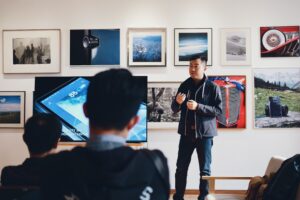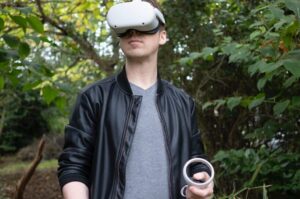In today’s world, the role of women in tourism is becoming increasingly important, especially in the context of alternative and sustainable tourism. Women are actively involved in creating unique tourist offers that take into account environmental, cultural and social aspects. Their participation in tourism contributes to the development of local communities, the preservation of cultural heritage and the implementation of sustainable practices. According to the World Tourism Organization, women make up 54% of the workforce in the tourism sector compared to 39% in other sectors of the economy. In the hotel and accommodation sector, women make up 61% of the workforce. In travel agencies and among tour operators – 64%. At the same time, women in tourism earn 14.7% less than men, which is still better than 16.8% in other sectors of the economy. Women today are active in leadership positions, which demonstrates their growing influence in the tourism industry: 23% of tourism ministers are women, compared to 20.7% of all ministers. Women play a key role in the development of alternative tourist routes that offer unique experiences and introductions to local culture and traditions. They often act as guides, tour organizers and managers of tourist projects, helping to preserve the authenticity of tourist destinations. Women in the industry focus on creating tours that allow travelers to immerse themselves in local culture while supporting the local economy and preserving the environment. In the field of sustainable tourism, women are working on implementing environmental initiatives such as eco-tours, nature conservation projects and local economic development. Their activities are aimed at reducing the negative impact of tourism on the environment. Women leaders in sustainable tourism promote practices that reduce resource use, protect wildlife, and preserve natural sites from the harmful effects of mass tourism. The WAST project (Support Young Women and Professionals in the field of Alternative and Sustainable Tourism) aims to support young women in tourism through training and professional development in the field of alternative and sustainable tourism. The project provides women with the knowledge and skills needed to create sustainable tourism products that take into account the needs of local communities and environmental challenges. Thanks to these programs, women can actively participate in the development of new tourist routes that offer not only exciting experiences, but also contribute to the sustainable development of the region. WAST also promotes the development of cooperation between European countries, supporting the exchange of experience and best practices in the field of alternative tourism. The project involves artists and representatives of other creative professions to create unique tourist offers that combine art and culture. Women in tourism are often agents of social change, involving groups such as youth, the elderly and people with disabilities in their projects. They develop inclusive tourism programs that provide equal opportunities for all participants. Thus, women contribute to building a fairer and more inclusive society where everyone can find their place in the tourism business. By participating in projects like WAST, women gain access to training programs that enhance their digital and professional skills. This allows them to more effectively use modern technologies to develop their tourism businesses and create new opportunities for travelers. Training helps women become more competitive in the labor market and take leadership positions in the tourism sector. In general, women in tourism contribute to the development of innovative approaches to travel that take into account environmental and social aspects. Their work in creating alternative and sustainable tourism products not only enriches the tourism industry, but also makes the world a better place for future generations.
|






